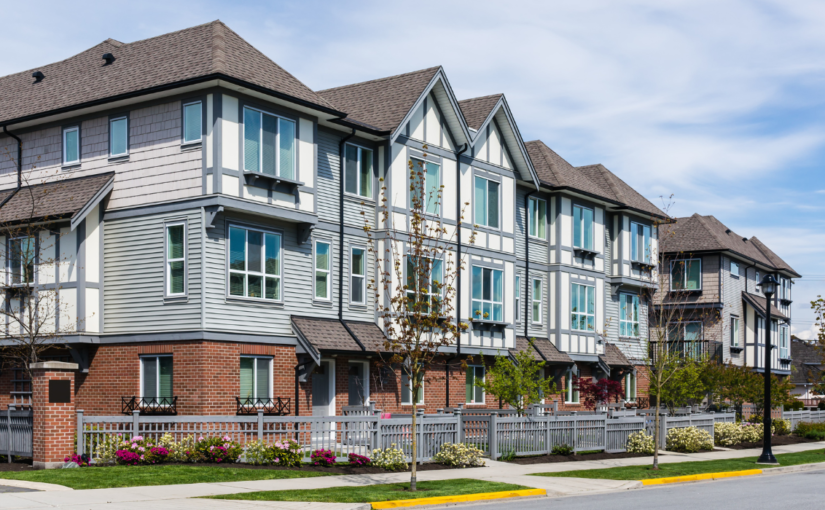back
The Benefits and Drawbacks of Recourse vs. Non-Recourse Loans for Multifamily Properties
04-2023

Recourse and non-recourse loans are the two main loan types used to finance multifamily properties. Before choosing, it’s crucial to grasp the advantages and disadvantages of each types. The distinctions between recourse and non-recourse loans, as well as the benefits and drawbacks of each, will be covered in this blog post.
Recourse Loans
Recourse loans are under the category of loans where the debtor is held personally accountable. This means that if the borrower misses a payment on the loan, the lender may pursue personal assets to recoup the debt. In contrast to home mortgages, commercial real estate finance frequently uses recourse loans.
Benefits of Recourse Loans
- Lower Interest Rates: Since recourse loans involve a higher level of risk for the borrower, lenders are more likely to offer lower interest rates in return for a personal guarantee from the borrower. Over the course of the loan, this could result in significant savings for the borrower.
- Flexibility: In terms of loan terms, repayment plans, and other aspects, recourse loans give more latitude. This is because the lender is more open to negotiating terms because they have more options for recovering their money in the case of a default.
- Access to Higher Loan Amounts: Because the borrower’s personal assets are at risk, lenders are more inclined to make recourse loans in higher quantities. For investors wanting to purchase bigger multifamily homes, this can be very advantageous.
Drawbacks of Recourse Loans
- Personal Liability: The major drawback of recourse loans is that the borrower is held personally responsible for the debt. This indicates that the borrower’s personal assets are at jeopardy if the loan is not repaid. Individual investors, who might not have the same amount of protection as larger firms, may find this to be very dangerous.
- Higher Risk: Because the borrower is held personally liable for the debt, recourse loans are riskier for the borrower. This implies that the borrower may be liable for a sizable sum of money if the property doesn’t perform as anticipated or if there is a market slump.
Non-Recourse Loans
In a non-recourse loan, the borrower is not held personally responsible for the debt. In the event of default, the lender can only pursue the property itself. Larger commercial real estate transactions tend to have a higher prevalence of non-recourse loans.
Benefits of Non-Recourse Loans
- Limited Personal Liability: The primary benefit of non-recourse loans is that the borrower’s personal assets are not at danger. Individual investors who might not have the same level of protection as investors in larger corporations may find this to be particularly intriguing.
- Lower Risk: Since the borrower is not held personally accountable for the debt, non-recourse loans involve a lower risk for them. In other words, the borrower’s private assets are not in danger if the property doesn’t perform as anticipated or if there is a market slump.
Drawbacks of Non-Recourse Loans
- Higher Interest Rates: Lenders often demand higher interest rates for non-recourse loans since they pose less risk to the borrower. Non-recourse loans may become more expensive as a result throughout the course of the loan.
- Limited Flexibility: Non-recourse loans have less options for loan terms, repayment plans, and other characteristics. This is due to the lender’s restricted ability to reclaim their money in the case of a default, which makes them less receptive to terms being negotiated.
- Loan Amounts Are Limited: Non-recourse loans frequently have lower loan-to-value ratios, which means that the borrower may not be able to obtain as much credit as they could with a recourse loan. For investors trying to buy larger multifamily homes, this may be a drawback.
Which Type of Loan is Right for You?
Your unique situation and level of risk tolerance will ultimately determine whether you choose a recourse loan or a non-recourse loan. Recourse loans may have more flexibility and cheaper interest rates, but they also include a personal liability risk. However, non-recourse loans have higher interest rates and less flexibility while offering limited personal accountability. When determining which kind of loan to pursue, it’s crucial to take your financial condition, investing objectives, and risk tolerance into account. The best course of action for your multifamily property investment might ultimately be determined by speaking with a financial counselor or mortgage specialist.
F2H Capital Group is a debt advisory firm specializing in negotiating the best terms for your commercial real estate projects. The company offers a range of financial products and services, including fixed loans, bridge loans, and construction loans across all asset types. Please contact us for any of your financing needs.

